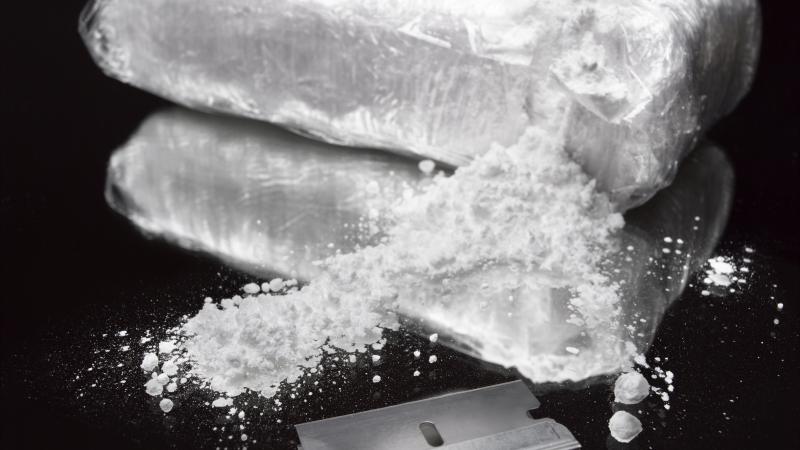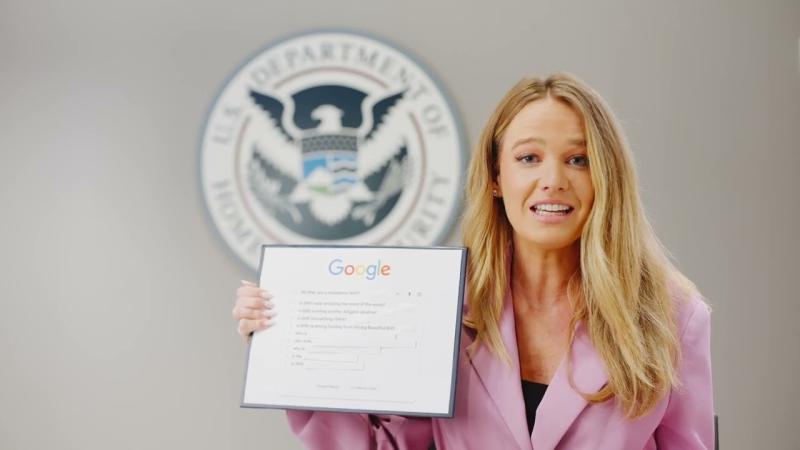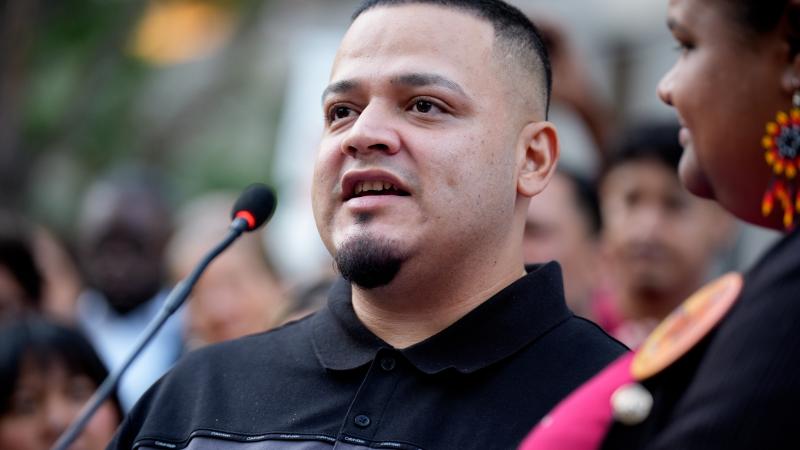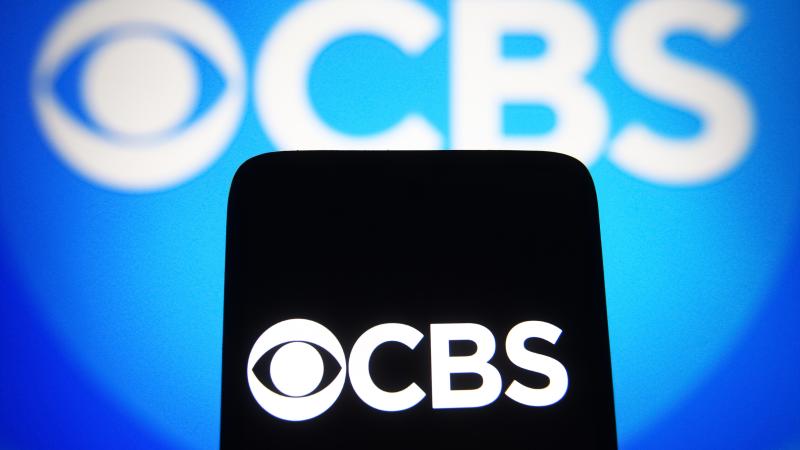Declassified intel ties Soros to Clinton's Russiagate plan for FBI to 'put more oil into the fire'
A declassified annex from John Durham's report sheds new light on the Clinton Plan to falsely tie Trump to Putin, with the expectation that the FBI would join in too.
Newly-declassified so-called Clinton Plan intelligence included intercepted communications from a George Soros ally which suggested that Hillary Clinton’s 2016 campaign against Donald Trump was plotting a “long-term affair to demonize” Trump by linking him to Russian leader Vladimir Putin, and that the Clinton campaign expected that “the FBI will put more oil into the fire.”
The revelations, including intercepted purported communications from Leonard Benardo, a top official at George Soros’s Open Society Foundations, and communications by Clinton foreign policy adviser Julianne Smith, provide new insight into information that the U.S. intelligence community received in July 2016 – just before the FBI launched its politicized Crossfire Hurricane investigation.
The bombshell allegations about a plot to falsely link Trump to Putin in an effort to distract from Clinton’s classified emails scandal are found within a formerly classified but now largely-unredacted appendix from special counsel John Durham’s 2023 report on the origins and conduct of the Russiagate investigation.
The intelligence received by the U.S. intelligence community, including the FBI, included information and analysis from purported emails from Benardo which detailed an alleged plot by Smith and others, with the approval of Clinton herself. The emails appear to have been first obtained through Russian hacking operations.
“The media analysis on the DNC hacking appears solid… Politicization is on the table... Julie says it will be a long-term affair to demonize Putin and Trump. Now it is good for a post-convention bounce. Later the FBI will put more oil into the fire," Benardo allegedly said in an email on July 25, 2016.
Durham noted that "Julie" appeared to be a reference to Julianne Smith.
Benardo's purported email the next day – July 27, 2016 – also said: “HRC [Hillary Rodham Clinton] approved Julia’s idea about Trump and Russian hackers hampering U.S. elections. That should distract people from her own missing emails, especially if the affair goes to the Olympic level. The point is making the Russian play a U.S. domestic issue."
"Say something like a critical infrastructure threat for the election to feel menace since both POTUS [Obama] and VPOTUS [Biden] have acknowledged the fact IC [intelligence community] would speed up searching for evidence that is regrettably still unavailable..." the purported email from Benardo continued. "In absence of direct evidence, Crowdstrike and ThreatConnect will supply the media, and GRU [Russia’s Main Intelligence Directive] will hopefully carry on to give more facts."
Durham said there is evidence to believe the Clinton Plan intelligence was authentic, with some analysts saying it was "possible" that "the Russians might have fabricated or altered" the emails, while other analysts said that "their best assessment was that the Benardo emails were likely authentic."
The special counsel's annex said Durham's team interviewed Benardo and showed him the emails, and that "Benardo stated that they did not look familiar to him" and that he did not know who "Julie" was.
Durham wrote in his annex that "the Office's best assessment" is that the alleged Benardo emails from July 2016 "were ultimately a composite of several emails that were obtained through Russian hacking of the U.S.-based Think Tanks, including the Open Society Foundations."
The special counsel said there was also evidence that the Clinton campaign did indeed carry out this dirty trick.
“The office’s review of certain communications involving Smith provided possible additional support … to the notion that the Clinton campaign was engaged in an effort or plan in late July 2016 to encourage scrutiny of Trump’s purported ties to Russia, and that the [Clinton] campaign might have wanted or expected the FBI or other agencies to aid that effort (‘put more oil into the fire’) by commencing a formal investigation of the DNC hack,” Durham’s classified annex stated.
The Durham classified annex also assessed that “it is a logical deduction [REDACTED] [Julianne] Smith was, at minimum, playing a role in the Clinton campaign’s efforts to tie Trump to Russia” and that the communications reviewed by the special counsel “certainly lends at least some credence that such a plan existed.”
Benardo is the senior vice president of Soros’s Open Society Foundations, founded by leftwing billionaire George Soros and now currently chaired by his son Alex Soros.
“The claim that the Open Society Foundations helped orchestrate an FBI investigation is an outrageous falsehood. It is grounded in malicious disinformation traced to Russian intelligence and now weaponized as part of a politically motivated campaign to attack our leadership and our work to promote human rights," a spokesperson for the Soros-run group told Just the News. "The Durham report found no wrongdoing by our staff. We are a nonpartisan organization and do not engage in political campaign activity. These accusations are not just reckless, they are dangerous. They reflect a broader effort to foment hostility and undermine civil society — and they are calculated to distract from real scandals.”
Smith was the head of the Clinton campaign’s Europe team and worked as a foreign policy advisor for the failed 2016 bid. Smith had been acting national security advisor and deputy national security advisor to then-Vice President Joe Biden during the Obama administration. She served as the U.S. Permanent Representative to NATO during the Biden administration, and also served as a senior adviser to then-Secretary of State Antony Blinken. She is also a close ally of Biden Defense Secretary Lloyd Austin, and is currently serving as the president of the newly-formed Clarion Strategies, which she recently co-founded with Austin.
Smith did not immediately respond to a request for comment sent to her by Just the News through the Clarion Strategies contact website.
Clinton herself was previously asked about the Clinton Plan intelligence, and told Durham’s team in an interview that it was "really sad" but "I get it, you have to go down every rabbit hole." She said that it "looked like Russian disinformation to me; they're very good at it, you know."
Clinton campaign foreign policy adviser Jake Sullivan told Durham’s team that he had not seen the intelligence reporting before and had no reaction to it other than to say, “That’s ridiculous.” Durham said that “Sullivan could not recall anyone articulating a strategy or ‘plan’ to distract negative attention away from Clinton by tying Trump to Russia, but could not conclusively rule out the possibility.”
Clinton campaign chairman John Podesta told Durham that the claims were “ridiculous” and denied the campaign was involved in any such “plan.” Clinton campaign communications director Jennifer Palmieri also called it “ridiculous.”
It has been known for years that then-CIA Director John Brennan briefed President Barack Obama in summer 2016 about CIA-obtained intelligence indicating a foreign enemy had intercepted Clinton's Russia hoax plan.
Brennan's own notes of his conversation with Obama and other top officials described the foreign enemy intelligence as having captured "alleged approval by Hillary Clinton on 26 July of a proposal from one of her [campaign] advisors to vilify Donald Trump by stirring up a scandal claiming interference by the Russian security services."
A subsequent CIA referral to since-fired FBI Director James Comey — declassified in 2020 — shows that the CIA believed Clinton's false narrative would suggest Trump and Russian hackers were hampering U.S. elections, and that Clinton's end goal was "distracting the public from her use of a private email server."
Durham’s 2023 public report revealed that “the Intelligence Community received the Clinton Plan intelligence in late July 2016” and that Brennan soon alerted top Obama administration officials including Obama, Comey, Biden, and others. But Durham found that, rather than seriously investigating this alleged Clinton scheme, the Obama administration's intelligence and law enforcement apparatus pushed forward on the baseless Trump-Russia collusion saga regardless.
According to Durham’s public report, the purported scheme by Clinton was allegedly approved on July 26, 2016 — smack-dab in the middle of the 2016 Democratic convention nominating Clinton for president. The Durham report also noted that the approval of the Clinton Plan occurred the exact same day that Australian diplomat Alexander Downer — a Clinton supporter — provided the U.S. government a months-old tip about Trump campaign associate George Papadopoulos — with Downer’s tip being cited as the predication to launch Crossfire Hurricane at the end of July 2016.
Senate Judiciary Committee Chairman Chuck Grassley, R-Iowa, who made the formerly-classified information public, said on Thursday that “based on the Durham annex, the Obama FBI failed to adequately review and investigate intelligence reports showing the Clinton campaign may have been ginning up the fake Trump-Russia narrative for Clinton’s political gain, which was ultimately done through the Steele Dossier and other means.”
“These intelligence reports and related records, whether true or false, were buried for years,” Grassley said. “History will show that the Obama and Biden administration’s law enforcement and intelligence agencies were weaponized against President Trump. This political weaponization has caused critical damage to our institutions and is one of the biggest political scandals and cover-ups in American history. The new Trump administration has a tremendous responsibility to the American people to fix the damage done and do so with maximum speed and transparency.”
The Durham declassified annex said that the “FBI was fully alerted to the possibility that at least some of the information it was receiving about the Trump campaign might have its origin either with the Clinton campaign or its supporters, or alternatively, was the product of Russian disinformation.” But the annex stated that “despite this awareness” — that it might be dealing with a Russian falsehood or alternatively with a genuine Clinton campaign dirty trick — “the FBI appears to have dismissed the [intelligence information] as not credible without any investigative steps actually having been taken to either corroborate or disprove the allegations.”
The declassified appendix added that, after Trump’s win in November 2016, it was only in 2017 that the “CIA prepared a written assessment of the authenticity and veracity of the above-referenced intelligence. The CIA stated that it did not assess that the above [REDACTED] memoranda, or [REDACTED] hacked U.S. communications, to be the product of Russian fabrications.”
The Durham annex also revealed that, besides the July 2016 Clinton Plan intelligence, the Obama administration received information from a source which was contained in two memoranda.
The January 2016 memo detailed the alleged intention by then-President Obama to scuttle the FBI’s investigation into Clinton’s illicit private email server.
The March 2016 memo alleged that “[the Democratic Party’s] opposition is focused on discrediting Trump…. [a]mong other things, the Clinton staff, with support from special services, is preparing scandalous revelations of business relations between Trump and the ‘Russian Mafia’.”
Durham said that FBI analysts believed that, at the time, the “special services” in the March 2016 memo could refer “to the FBI and the CIA or more broadly to the intelligence and law enforcement communities” inside the United States. But other analysts speculated that it could refer to “Trump dossier author Christopher Steele.”
Durham’s public report said that an unnamed Clinton campaign advisor — "Foreign Policy Advisor-1" (revealed now to be Smith) — stated that “she did not specifically remember proposing a ‘plan’ to Clinton or other campaign leadership to ‘stir up a scandal’ by tying Trump to Putin or Russia … however, that it was possible that she had proposed ideas on these topics to the campaign's leadership, who may have approved those ideas.” Smith “said it was also possible someone proposed an idea of seeking to distract attention from the investigation into Clinton's use of a private email server, but she did not specifically remember any such idea.”
Durham said in his public report that he obtained an email from "Foreign Policy Advisor-1" — dated July 27, 2016 — which seemed to align with the Clinton Plan intelligence. The annex revealed this advisor was Smith. The email was sent in an effort to gain signatures for a draft stating critiquing Trump over Russia.
“We are writing to enlist your support for the attached public statement. Both of us are Hillary Clinton supporters and advisors but hope that this statement could be signed by a bipartisan group[.],” the email from Smith said. “Donald Trump's repeated denigration of the NATO Alliance, his refusal to support our Article 5 obligations to our European allies and his kid glove treatment of Russia and Vladimir Putin are among the most reckless statements made by a Presidential candidate in memory.”
Durham concluded that “Foreign Policy Advisor-1's July 27, 2016 email to her colleagues regarding Trump, Russia and NATO — the day after Clinton purportedly approved a plan to tie Trump to Russia — is consistent with the substance of the purported plan.”
The special counsel also dug up a text exchange between the aforementioned "Foreign Policy Advisor-1" (Smith) and "Foreign Policy Advisor-2" dated July 25, 2016 — the day prior to the alleged approval of the Clinton Plan.
The second foreign policy advisor reportedly asked the first one if an unnamed Obama NSC member “will tell you if there is a formal FBI or other investigation into the hack” of the DNC. The first foreign policy advisor replied that “[she] won't say anything more to me. Sorry. Told me [she] went as far as [she] could.” The first foreign policy advisor suggested that they “can also try OVP [Office of the Vice President]” because Biden’s vice presidential office “might say more.” The second foreign policy advisor said it “would also be good to try [Biden’s office], and anyone in IC [intelligence community].”
The exchange between the two foreign policy advisors then included a recognition that the FBI soon put out a statement that day saying it was investigating the alleged DNC hack.
“The FBI is investigating a cyber intrusion involving the DNC and are working to determine the nature and scope of the matter,” the FBI said in a statement that day. “A compromise of this nature is something we take very seriously, and the FBI will continue to investigate and hold accountable those who pose a threat in cyberspace.”
Durham’s report further concluded that “Foreign Policy Advisor-1's text message exchange with Foreign Policy Advisor-2 supports the notion that at least some officials within the campaign were seeking information about the FBI's response to the DNC hack, which would be consistent with, and a means of furthering, the purported plan."
The special counsel's public report also said that “the official who initially received the information [on the Clinton Plan intelligence] immediately recognized its importance, including its relevance to the U.S. presidential election, and acted quickly to make CIA leadership aware of it.” Internal CIA materials show that Brennan “personally received a copy of the [Clinton Plan] intelligence.”
Durham wrote that, when interviewed, "Brennan generally recalled reviewing the materials but stated he did not recall focusing specifically on its assertions regarding the Clinton campaign's purported plan. Brennan recalled instead focusing on Russia's role in hacking the DNC.”
Durham said Brennan's handwritten notes reflect that Brennan briefed Obama, Biden, Comey, and others in the summer of 2016 regarding the "alleged approval by Hillary Clinton on 26 July of a proposal from one of her [campaign] advisors to vilify Donald Trump by stirring up a scandal claiming interference by the Russian security services." This is exactly what the Clinton campaign had planned to do.
Brennan’s lawyer, Kenneth Wainstein, had told Durham in 2022 that “Director Brennan became aware of intelligence that Hillary Clinton had allegedly approved a plan to generate a narrative associating Donald Trump with Russian security services' efforts to interfere with the election. Director Brennan shared this information at a National Security Council meeting, and the CIA shared it with the FBI via a transmittal memo.”
Brennan also stated that he created a "Fusion Cell" inside the CIA to focus on alleged Russian meddling after meeting with President Obama and other White House personnel, during which Brennan and the President discussed intelligence relevant to the 2016 presidential election as well as the potential creation of an inter-agency fusion cell.
Durham’s report said the Clinton Plan intelligence may have prompted Brennan’s creation of the fusion cell, saying that “email traffic and witness interviews conducted by the Office reflect that at least some CIA personnel believed that the Clinton Plan intelligence led to the decision being made to set up the Fusion Cell.”
Key FBI officials from whom the Clinton Plan intelligence was hidden later told Durham that they were upset by this concealment and that they should have seen it in 2016. Many FBI personnel involved with Crossfire Hurricane had never seen the Clinton Plan intelligence until Durham’s team showed it to them, and “some expressed surprise and dismay upon learning of it,” the report found.
Now-former FBI General Counsel James Baker also told Durham “that he had neither seen nor heard of the Clinton Plan intelligence or the resulting Referral Memo prior to his interview.” Baker said that “had he known of it during the Crossfire Hurricane investigation, he would have viewed in a different and much more skeptical light” both the Steele Dossier and the Alfa Bank claims.
It appears undeniable at this point that the Clinton campaign engaged in a lengthy and coordinated effort to tie Trump to Russia during the 2016 election, a strategy Clinton campaign communications director Jennifer Palmieri would later detail at length in a post-election opinion piece in The Washington Post. That editorial never mentioned Clinton’s role in generating the false Steele Dossier and Alfa Bank claims in the first place.
Clinton campaign lawyer Marc Elias hired the opposition research firm Fusion GPS, which in turn hired Steele in 2016. Elias has testified he was aware of Fusion’s plans to have Steele brief reporters on his anti-Trump research during the 2016 contest, met with Steele during the 2016 contest, and periodically briefed the campaign about the findings from Fusion and Steele.
Clinton campaign manager Robby Mook said in 2017 that he had authorized Elias to hire a firm to dig up dirt on Trump’s connections with Russia and said Elias periodically briefed the Clinton campaign about the dirt that Fusion (and therefore Steele) had claimed to have dug up.
Testimony from Durham’s investigation also showed that a key part of the implementation of the plan to tie Trump to Russia — pushing the false Alfa Bank claims to the media — was personally approved by Clinton. Clinton would tout the baseless allegations in multiple tweets on Halloween 2016, only to be amplified by an anti-Trump legacy media.
Top Clinton campaign officials have denied the existence of any such scheme, but Durham’s report is replete with emails and texts from Clinton campaign foreign policy advisers echoing the exact same themes tying Trump to Putin.
The newly-declassified House Intelligence Committee report stated that “the SVR [Russian intelligence] possessed a campaign email discussing a plan approved by Secretary Clinton to link Putin and Russian hackers to candidate Trump in order to ‘distract the [American] public’ from the Clinton email server scandal.” Yet the Russians did not release this information when it could have impacted the 2016 election.
The House report also showed that the Russians were in possession of — but did not release during the 2016 election — allegations related to potential improper influence over the FBI’s Midyear Exam investigation into Clinton’s illicit use of a private email server.
The House committee wrote that Comey testified that, in August 2016, the SVR had DNC emails in which the head of the DNC "was telling people that [former Attorney General] Lynch was working to control me and keeping a named member of the Clinton campaign informed on what the FBI was doing in the [Clinton] email investigation.”
And the newly-declassified report said that “in March 2016, the SVR had intercepted discussions between a high-ranking DNC official and a U.S. non-governmental organization indicating that a Clinton staffer was receiving updates on the FBI's Clinton email investigation from a high ranking Department of Justice official.”
Nevertheless, the Russians did not release this information — damaging as it may have been to Clinton’s candidacy — prior to the November 2016 vote.
The House Intelligence report contended that “documents leaked during the election were far less damaging to Secretary Clinton than those Putin chose not to leak” and so “it is difficult to justify the ICA judgment that Putin ‘aspired’ to help Trump win by discrediting Secretary Clinton, given that in the closing weeks of the campaign — when such devastating leaks could have been decisive — President Putin elected not to inject this material into the campaign.”













